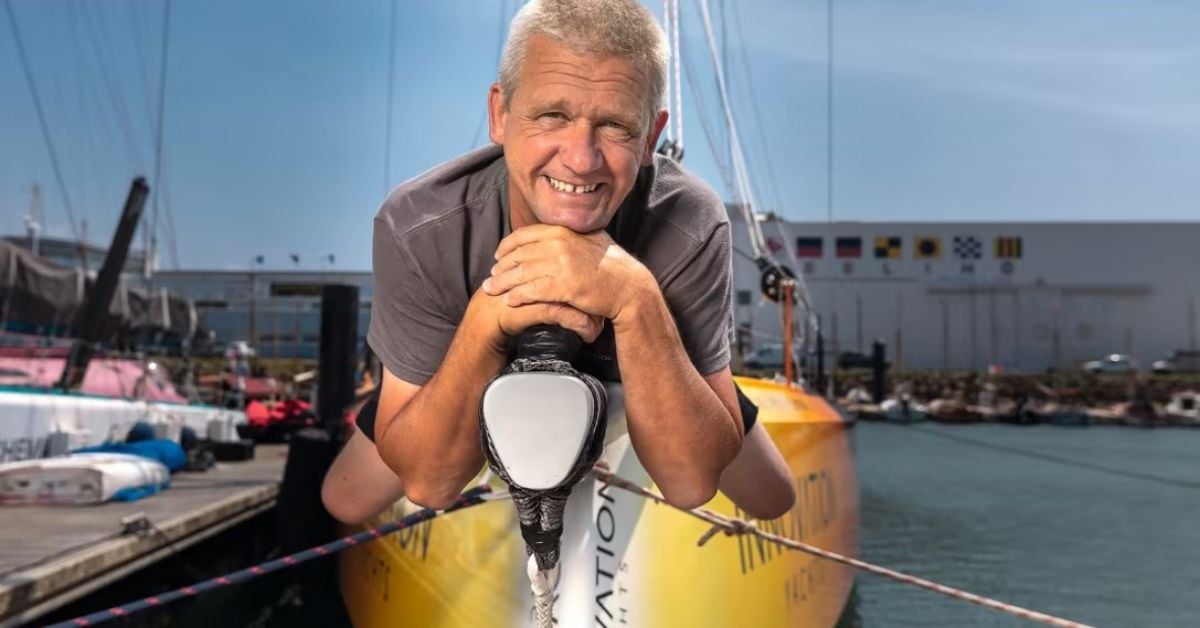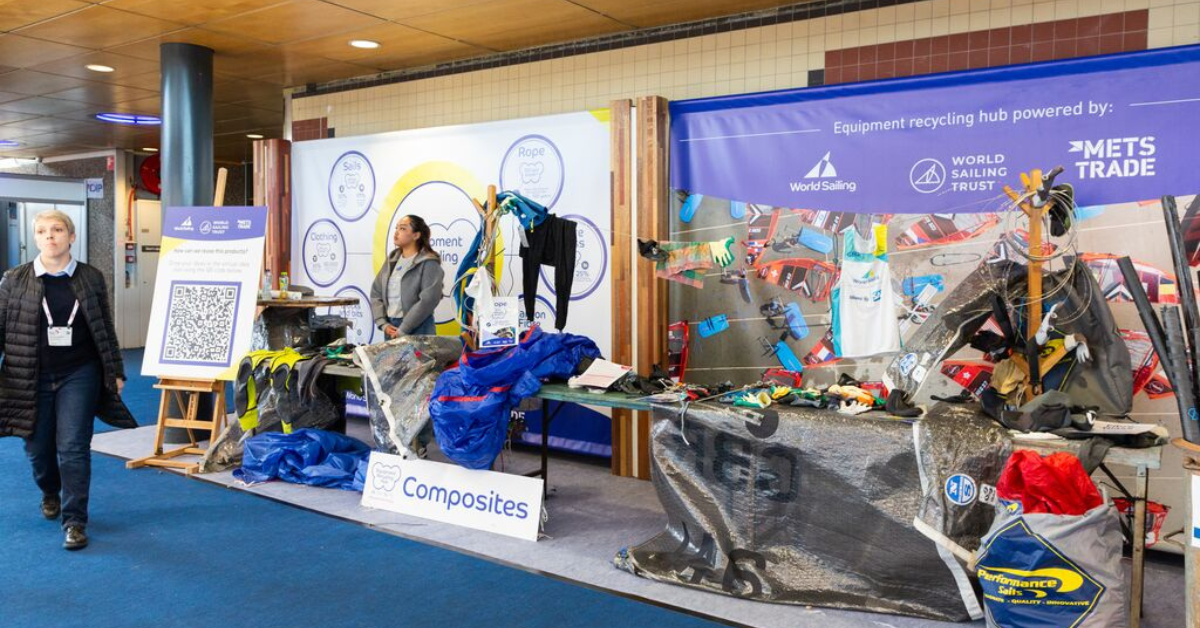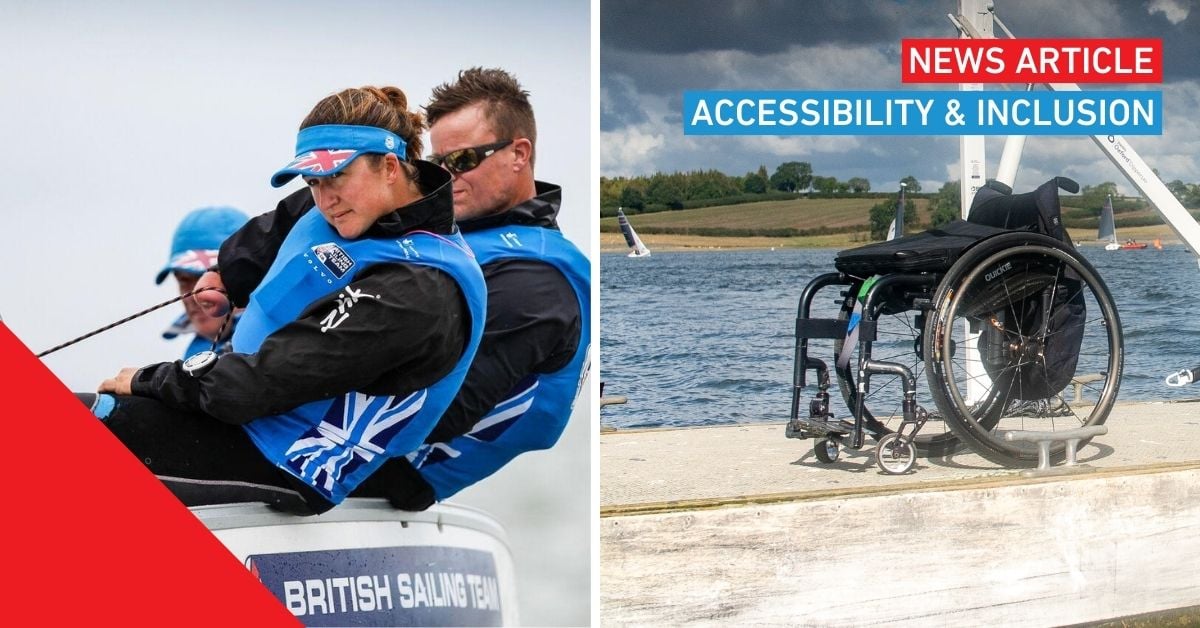To legislate or not to legislate - Lifejacket debate splits industry
A petition in the UK is looking to make wearing a lifejacket compulsory for those aged under 16. Marine Industry News marineindustrynews.co.uk/ explores the debate looking at responsibility, consequences and attitudes.
According to Alistair Hackett, managing director of Ocean Safety, the marine industry has seen a massive increase in lifejacket use in the UK. He puts this down to two noticeable changes. The first is that event organisers and regulatory bodies are stating, ‘you must wear a lifejacket to do this’, and the second is that means there’s been wide improvement in the design of the product. As Hackett told Marine Industry News https://marineindustrynews.co.uk/ocean-safety-md-marine-safety-must-never-become-a-box-ticking-exercise it’s “because the rules say that people have to have them and they have to wear them in certain conditions . . . it promotes discussion and advancement.” He says the sailing community is now actively discussing how do I wear it, how do I use it, when do I use it, and, for some, how do I integrate my AIS?
"Lifejackets have improved beyond the dreams of the 1960s. It's so easy to wear one nowadays that I can well understand people opting to do so whenever they are on deck," says Tom Cunliffe, sailor and author.
That these changes are taking place in certain areas (racing, sports clubs, regattas) is welcome.
A petition in the UK under the title of Lucas’ Law seeks to bring in wider regulations which will affect leisure sailors.
The petition aims to create an enforceable law regarding the wearing of lifejackets by those under 16, and ensuring there are enough personal floatation devices (PFDs) on board per passenger on any privately owned vessel regardless of its size.
It’s in memory of Lucas Dobson, a six-year-old who lost his life in August 2019, and seeks to emulate the laws in place in Ireland, which broadly say all those on a 23ft and under boat must wear a PFD and anyone under 16 years old, must wear a lifejacket at all times on all pleasure craft.
The petition is supported by Peter Faulding, Specialist Group International. As a forensic diver, tasked with retrieving bodies, he’s helped build and fund a campaign to distribute lifejackets to schools under the banner of Lucas’ Legacy.
Faulding says that people don’t appreciate the number of people who drown in lakes and rivers, as well as the sea. In 2016, he says, he recovered 16 bodies within eight weeks. And that was in just two counties.
He supports mandatory lifejackets, for children under the age of 16.
"Up to the age of 16 it should be compulsory for children,” Faulding says. "I don't wear the excuse that it’s too expensive. If you can buy a boat, you can buy a lifejacket."
Faulding says he was refuelling recently (June 2022) and saw a family on a RIB go by. Four children and only one in a lifejacket.
"Some people are so blasé about life safety," Faulding says. "People don't think about the boat going under and then swimming in a current, trying to save the rest of the family."
But, he reflects, it would be difficult to make lifejackets compulsory for all, so he's working to raise awareness.
Faulding delivers Baltic lifejackets to schools which can then be loaned out to families "like library books." He flies in on his helicopter and delivers a brief water safety talk to the whole school, so the event sticks in children’s minds.
"I don’t want to just send the lifejackets," he says. "All they'll do is arrive and get thrown into a cupboard. But kids will remember a helicopter arriving and the water safety talk." About 20 schools across the UK have joined the scheme so far.
But Tom Cunliffe believes that "parents, guardians and skippers should take responsibility for rules on board," but is against enforceable regulation.
He says that experienced sailors should make their own choices.
"I put mine on any time I think I may need it, which is not whenever I'm in a boat. It might be in fog, in heavy weather, or in the dinghy, for example. I've been sailing in deep water for 60 years and I trust my own judgment.
"I'm thrilled with my modern lifejacket and I'm much more likely to use it than the ghastly horrors of yesteryear, but let's have no finger-wagging. Educate people – yes, absolutely - then let them make up their own minds. After all, it's their life, not someone else's.
"As to proposed legislation, who decides the age cut-off? Who decides the difference between sailing on a J24 in a gale of wind and cruising on an 80-ton Brixham trawler with high bulwarks as well as guard rails and a motion akin to an easy chair? The unanswerable questions go on. For the love of reason let's have no legislation."
But, Faulding, Hackett – and many marine safety experts – warn of the risks of consumer complacency whereby the public never believe an emergency afloat will happen to them. While the vast majority of sailors will cite safety as top of their priority list on board, Hackett says in reality the time spent learning about safety products, how to store, use and deploy them doesn't reflect this.
As such, there is a balance to be struck between personal responsibility where a skipper's practical experience comes to the fore, and regulations. According to MaryAnne Edwards, consultant for GMBA, Australia and New Zealand marine associations are committed to supporting the views of their members. So while they support all safety measures, they're also concerned over regulation. There is always a fine line in any situation like this.
"Regulations for both countries are similar, and primarily make it compulsory on small craft for children under 12 to wear a lifejacket at all times. Requirements for carrying and wearing lifejackets vary depending on the type of vessel being used," she says.
But according to one safety expert there is a downside being experienced in Australia.
"They [boaters] go for the lowest common denominator and cheapest product possible," says the source. "In Australia you see it everywhere. They [boaters] know it is a ten dollar foamie. It retails at ten dollars and comes in a pack of five – that's the equivalent of £ 5 - £ 6 - but foamies barely meet any standards at all. They are then tucked away in a corner of a boat somewhere and not worn. They [boaters] don’t want to spend money on a better quality more comfortable product, because they say they’ve met the minimum standard.
"By enforcing laws, you can see an increase in the cheap products, which aren't as effective as something decent. The best jacket you have is the one you wear. Locking it away in a sealed cabinet to show an inspector that you’ve got them is not safety. That's the problem. When people choose to buy one, they come look at the features and the fit, how it works for them, their body shape, everything like that. It's like buying a shirt or a pair of shoes, you buy the best fitting that you can, and they achieve a job. But if you make it enforced, people will go out and buy the cheapest thing that can just to make the standard.
"In anything that you legislate, you need to set a minimum standard that is high and achievable."
So far, the Lucas' Law petition sits with over 2,000 signatures. It's garnered support of one MP, but unless there's the will within the marine community to push for regulation, it feels like the momentum isn't there – quite yet.
Like Edwards comment about 'fear' being a driver in messaging, Hackett cites the RNLI's previous campaign 'useless unless worn' as a hugely successful message that changed attitudes towards lifejackets.
"Buying the equipment is ten per cent of the story," says Hackett. “The owner and everybody in the crew has to understand how that equipment works, when to use it, what are the implications of using it, and so on.
"It's incumbent on the industry that we all push as hard as we can to make sure that people understand the intricacies of using safety equipment. Because when we do have to use it, that is not the time to start reading the instructions. You've got to understand it right from the get go."
MIN's hosting a panel discussion at METSTRADE about innovations in safety. Stay tuned to find out more about this free event – featuring amongst others Alistair Hackett on METSTRADE.
This article is a shortened version of the original which appeared in Marine Industry News marineindustrynews.co.uk in July 2022.
Share your stories on leisure marine industry with us
Do you have an innovation, research results or an other interesting topic you would like to share with the leisure marine equipment industry? The METSTRADE website and social media channels are a great platform to showcase your stories! Let us know via metstrade@rai.nl
Are you a METSTRADE exhibitor?
Make sure you add your latest press releases to your Company Profile in the Exhibitor Portal for free exposure.







